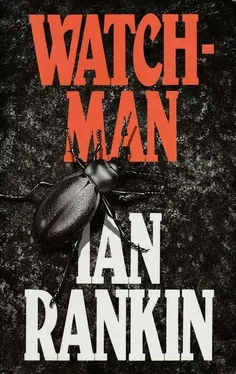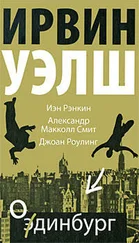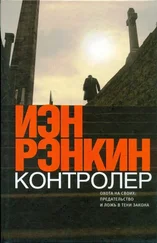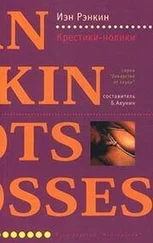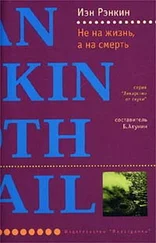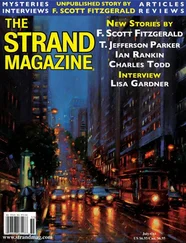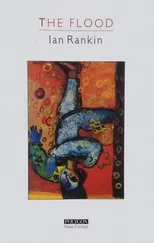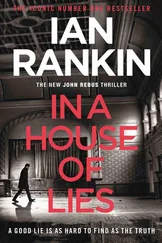Billy Monmouth bought his lunch at a sandwich bar and carried it back to his apartment, which wasn’t far from the office. In the lift, he peeled the wrapping away from what was supposed to be a tuna fish roll. All he could see was mayonnaise.
A piece of string lay on the coffee table in his lounge, meaning that he had had a visitor. He put down the roll and, wiping his hands, went over to one wall, along which was arranged a large and catholic selection of record albums. The stereo itself sat in a corner of the room, cruelly underused. Many of the albums he had never played and never would. He had bought them only for the names of their artists.
He crouched and examined the spines of the record sleeves. The first four albums were by Andy Williams, Paul Anka, Janis Ian, and Tchaikovsky. The message contained in their arrangement was simple: W-A-I-T. Nothing more, for the record that came after Tchaikovsky’s Nutcracker was by Miles Davis, and an album by Miles Davis, they had agreed, would mean ‘message delivered.’ He had his instructions.
Skipping lunch, Miles decided to calm himself by visiting his favorite shop, a grimy jazz emporium on the edge of Soho. On the way, he encountered a routine London car crash. A Rover had gone into the side of a spanking new Renault 5, and the driver of the Renault was being helped, shakily, from his crumpled car, while the driver of the Rover explained to a bored-looking young constable that it really was not his fault.
A crowd had gathered, as was customary, and Miles embedded himself in it. Having satisfied himself that there was no blood on view, he turned his attention to the crowd itself. What kind of person was attracted to a car crash? There were a few old ladies, a couple of young girls who chewed gum casually as though to say that they had seen it all before, some derelicts who were trying to cadge money from those around them, and then there were the other, blank faces, the faces of those anonymous souls who kept locked within themselves dreams of violence.
And, of course, Miles himself, his own dreams of violence kept under lock and key, watching it all with the reserve of an expert witness, should such be needed.
‘He’s famous, he is,’ said one old woman. ‘I seen him on the telly.’
‘Get away,’ said one of the girls. ‘Which one?’
‘The posh one talking to the policeman.’
The woman made sure that her whispered conversation was loud enough to be heard all around. The Rover driver, trying to ignore the woman’s voice, examined his watch testily, late for some appointment. The constable, as was his privilege, began to take things more slowly than ever.
‘Is he an actor then?’
‘No, it was the news he was on.’
‘The news?’
‘Not so long ago either. Last night, night before.’
‘Is he a newsreader, then?’
‘No, he’s a politician.’
Miles began pushing his way out of the thinning crowd, to whom not even this was newsworthy enough in a city under siege, and made his way the hundred yards or so to the shop, where Dave, the proprietor, was playing some new early recordings by the Miles Davis Quintet.
‘He’s the boss,’ he called to Miles, jerking a thumb toward the turntable. ‘You can say what you like, but Miles is the boss.’
Miles was not about to argue with that.
He went off to the racks to browse, finding this a good way to concentrate. With his fingers walking through the packed record sleeves, his mind was free, and time seemed to vanish. He had rejected an offer to lunch with Jeff Phillips, and wondered whether he might start to gain a reputation for frugality or even downright meanness within the firm. Billy had told him that one or two people in the past had tried to give him the nickname ‘Skinflint’ but it had never stuck.
Miles preferred his other nickname — The Invisible Man. As an undergraduate, he had joined his university’s Officers’ Training Corps and had enjoyed some of the weekend exercises. He was very good at these for the simple reason that he never got caught, and he never got caught for the more complex reason that, as other trainees told him, he ‘seemed to disappear,’ though in reality all he had done was to make himself as innocuous as possible.
Nowadays, he was aware of a beetle which did that too, an expert in camouflage. It was called the tortoise beetle, and its larvae carried lumps of excrement around on their backs, beneath which they could not be seen. Perhaps Miles was a bit like the tortoise beetle. But no, for he had been found out by a smiling Arab, and all because he would not go home to his wife.
He had first met her at Edinburgh University. They were both undergraduates, invited to a certain party where Miles had become roaring drunk and had wormed his way into a fight from which Sheila had rescued him. The following Monday, having put the weekend and his bruises behind him as a lost forty-eight hours, Miles had gone into the lecture hall yawning and ready for the fresh week’s work. A girl had slid into the row beside him.
‘Good morning, Miles,’ she had said, squeezing his arm. Shocked, he had tried to recall her face, pretending all the time that of course he knew who she was. He was bemused to find that, apparently, he had found himself a girlfriend without any of the long, painful searching which he had assumed would precede the event.
And that had been that, more or less: Miles’s first girlfriend had become his wife.
‘I wouldn’t have put you down as a jazz fan, Miles.’
Miles turned from the rack of records to find Richard Mowbray standing beside him.
‘Oh, hello, Richard.’
Billy referred to him as ‘Tricky Dicky’ because of his slight American accent, but Miles knew that Richard Mowbray was as English as his name suggested. He had been schooled for five years in the States while his father had worked in a university there, and those five crucial years had left him with a slight mid-Atlantic inflection to his otherwise thoroughly orthodox voice.
Mowbray was looking around him. He wore tinted glasses — an affectation — and looked older than his thirty-five years — another affectation. He, too, was a watchman.
‘I’ve heard the news, of course.’
‘Of course,’ said Miles. Was this a coincidental meeting? He thought not. Mowbray was supposed to be watching a suspected IRA cell in Forest Hill. He was well out of his territory.
‘What do you think of it all, Miles?’ Mowbray’s face had the sincerity of a president and the teeth of an alligator. Miles could not help asking himself what he wanted.
‘What do you want, Richard?’
‘I want to talk.’
‘Shouldn’t you be somewhere else?’
‘It’s not my shift. Besides, it looks like another dead end, surprise surprise.’
‘So what is it you want to talk about?’
‘The CIA, of course.’
Miles looked for a smile, for some acknowledgment that a joke was being made. None came.
‘OK,’ said Miles as a trumpet strained its way toward climax behind him, ‘let’s talk.’
‘Great. There’s a coffee shop across the road. Advertising execs mostly. That do you?’
‘Fine.’
And Mowbray led him across the street and into a sweet-smelling café where Jeff Phillips was already waiting for them.
‘What is this?’ said Miles.
‘Milk and sugar?’ asked Mowbray, pouring the coffee.
‘No thanks. I think I’ll take it black and bitter.’
‘Suit yourself. Jeff?’
‘White, no sugar, thank you.’
Miles checked his watch. He was tired of these games of protocol. It seemed that business could not be discussed without a preamble of sham courtesies and responses. Phillips sipped his coffee just a little too appreciatively: this, too, was part of the game. Miles felt his patience ebb, leaving only wrack and salt.
Читать дальше
